Tsutsumi & Associates converts Beijing factory into furniture brand headquarters
Tsutsumi & Associates has added a spiral staircase and glazed meeting rooms to an old factory in Beijing to transform the building into the headquarters of a furniture company (+ slideshow).
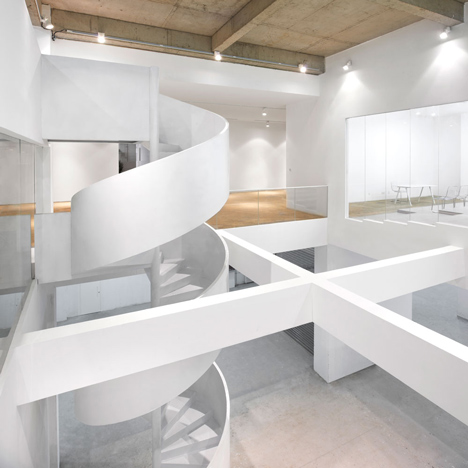
Beijing firm Tsutsumi & Associates renovated the entire four-storey building for Daxing Furniture, adding production facilities on the lower levels, a furniture showroom on the second floor, and offices on the third floor and mezzanine loft.
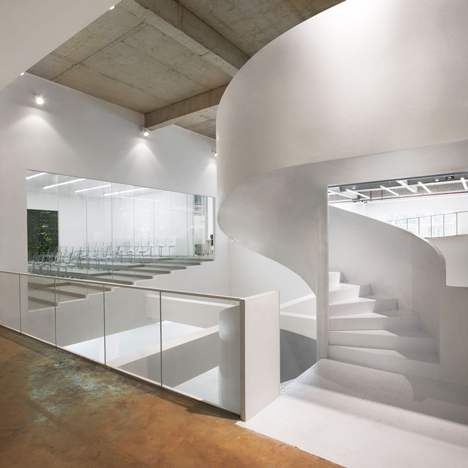
The staircase spirals up through a double-height void in the upper section of the building to connect the showroom with the offices. Glazed office cubes are positioned around the space, while an inclined atrium is visible on one side through a large internal window.
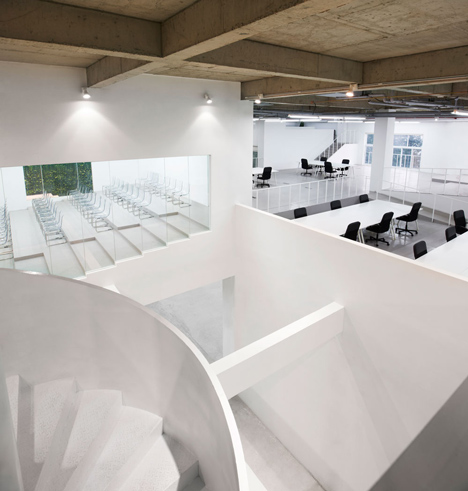
"I wanted to make [the space] as transparent as possible and emphasise the dynamics of the overhung loft volume," architect Yoshimasa Tsutsumi told Dezeen.
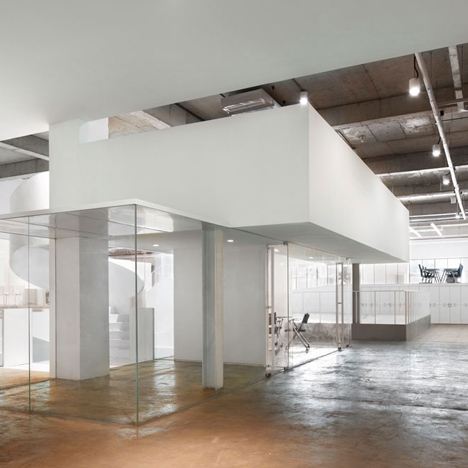
Concrete slabs are left exposed throughout the building, creating gridded ceilings that are streaked with rows of angled spotlights.
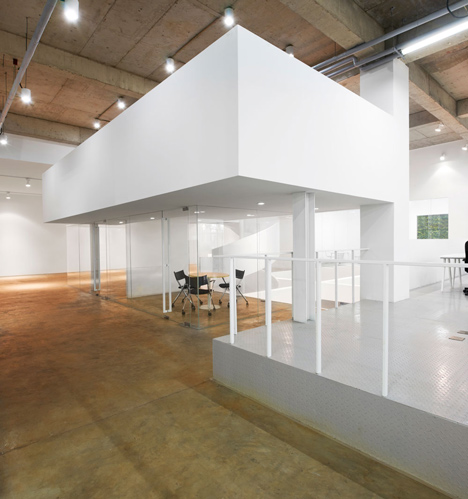
The architects also installed a wall of living plants on the office floor. "This separates the white boxes from the background and softens the office space at the same time," said Tsutsumi.
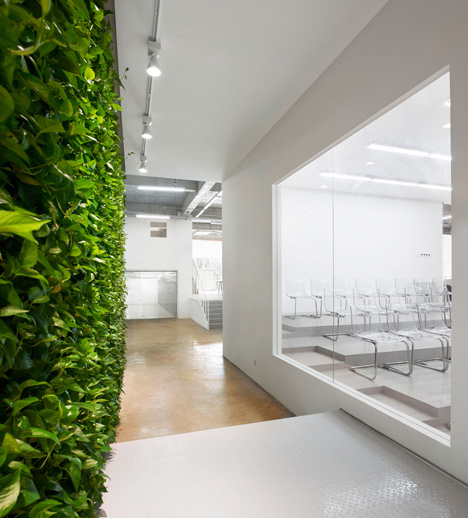
Photography is by Misae Hiromatsu.
Here's a project description from Tsutsumi & Associates:
Daxing Factory Conversion
The factory building was converted to the head office of the furniture manufacturer.
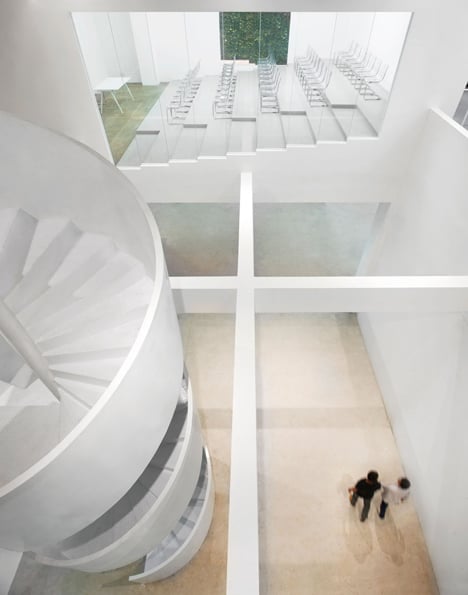
The programs are factory for 1st floor , 2nd floor and half of 3rd floor, exhibition space for half of 3rd floor, office space for 4th floor. The exhibition space of 3rd floor is connected to the 4th floor through spiral stairs where the existing floor was removed. 5.5m ceiling height is enough to make skip-floor style, so that we aimed to realise three-dimensional office landscape.
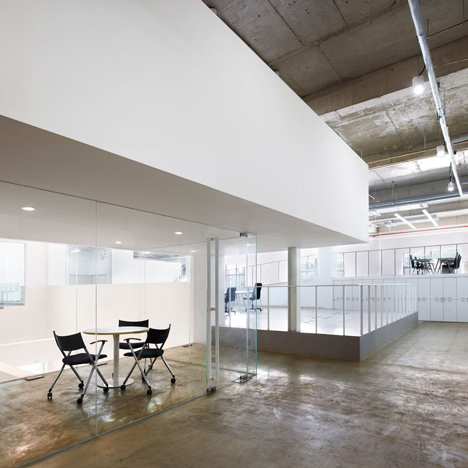
The requested programs were conference room, meeting room, resting space, office space, vice-presidents room and so on. Comparatively public programs of these such as conference room were put near to the elevator hall, on the other hand office space was put on inner part of the floor. Office space was planned to open, whereas the rooms those were needed to be closed would be treated as a group of several volumes in the huge space.
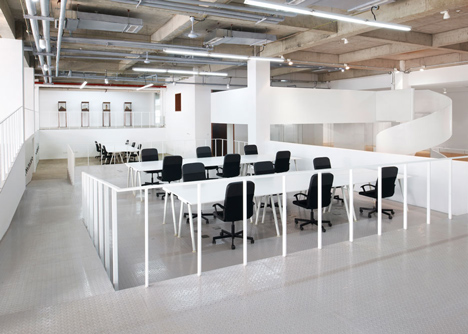
The spiral staircase that was put in the centre of the floor connects the exhibition space of 3rd floor and office space of 4th floor and resting space of loft. When we enter from the elevator hall, we can see the conference room in tiers next to the void with spiral staircase. On the opposite side of the conference room across the void, there is small-sized meeting room and the volume of the resting space is flying over it.
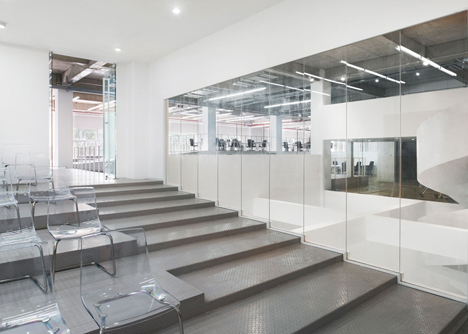
After passing through this small-sized meeting room, there is office space with skip-floor where the sections are clearly separated by the floor height also the difference of eye level induce the communication between them.
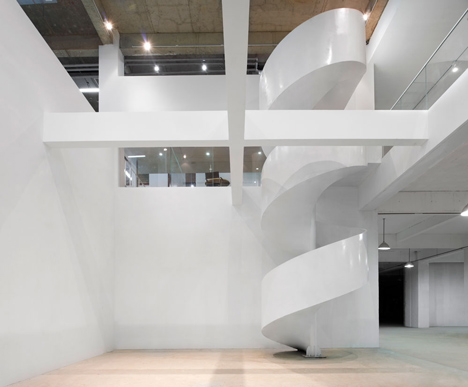
When rising up to 1.2m level, we reach the back of the conference room in tiers. This conference room connects between entrance hall and office space, when not using conference room we can use this as shortcut.
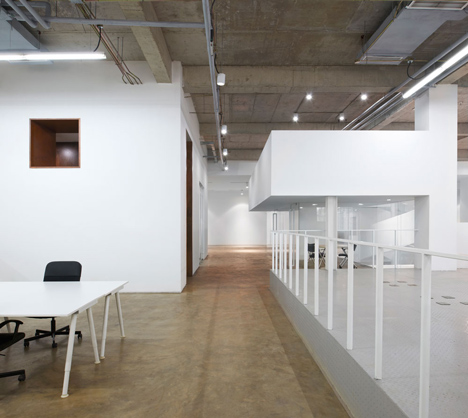
Basic use materials are white EP paint on the wall, mortar finish on the existing floor, steel checkered plate on the skip-floor. Around some part like elevator hall or stairs, Corten steel was used to add rigid accent, on the other hand on the wide wall at the end of the entrance hall vertical plant was put to soften space.
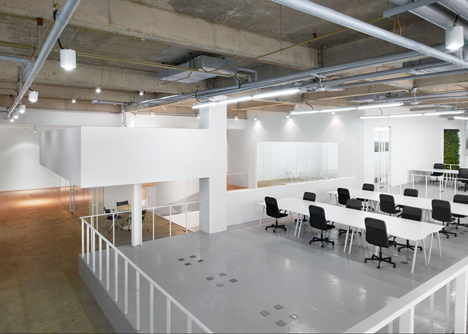
Inside the landscape with various levels, white boxes are put as if to make village. There are some bypasses, hidden area and open area, alcove where we can look down the atrium, also we can overview whole area from the loft space. As if we walk inside the ancient village, we can enjoy sequential view here.
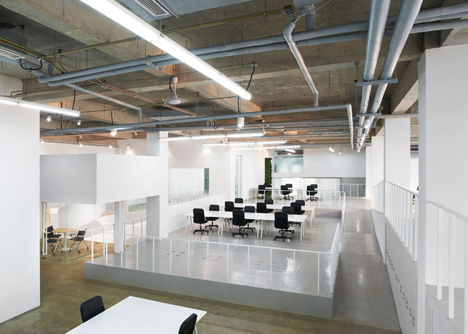
Client: THT Design & Consulting
Design: Nie Yong + Yoshimasa Tsutsumi / Tsutsumi & Associates
Address: Daxing district, Beijing, China
Area: 4,964 square metres
Program: office, exhibition space, factory
Construction: THT Design & Consulting
Completion: September 2013